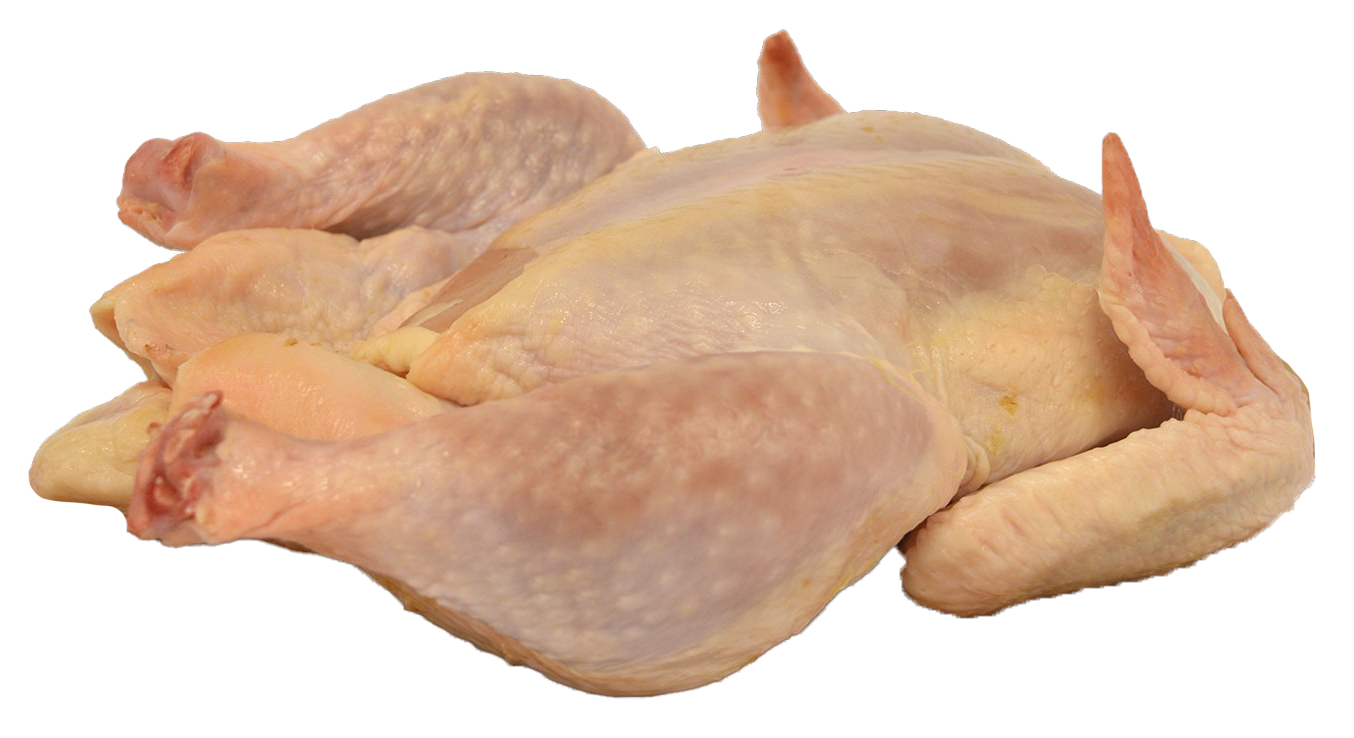Chicken

Chicken - pronounced 'CHIK-in' is a type of poultry and one of the most common and versatile meats eaten worldwide. It can be prepared in numerous ways, including grilling, baking, frying, and boiling.
Chicken is popular for its mild flavor, which pairs well with various seasonings and ingredients, making it a staple in many cooking traditions.
Not a fan of chicken? Here is some substitutes you can use. Turkey, it has a similar in texture and flavor, making it an excellent substitute in most chicken dishes. Tofu or Tempeh, for a vegetarian or vegan option, these can mimic chicken's texture, especially when marinated. In a pinch, you can use Pork or Veal. These meats can sometimes substitute for chicken, especially in dishes where the meat is cooked in sauces or as part of a stew.
Get a juicier chicken by brining it in saltwater before cooking. It will help keep it moist and juicy and add a little seasoning to the chicken. For a quick thaw, place frozen chicken in a sealed bag and submerge it in cold water for a faster thawing method. Be sure to change the water every 30 minutes. Always use a meat thermometer to make sure your chicken is cooked. A safe internal temperature of 165°F - 74°C to avoid undercooked poultry. Undercooked chicken can make you really sick.
Raw chicken can be kept in the fridge for 1 to 2 days, but to be safe use the 'Smell Test'. Give it a sniff, if it smells, and believe me, you'll know it, it is not safe to eat. When in doubt, throw it out. Cooked chicken lasts for 3 to 4 days and is great for quick meals, sandwiches, salads, and the list goes on. Buy chicken when it goes on sale. Pack it tightly in storage bags and freeze it raw. It will keep for up to 9 months. Be sure to label and date it.
Chicken is typically found in the meat section of grocery stores. You'll find a variety of cuts of chicken, including breasts, thighs, wings, and whole chickens, both fresh and frozen forms. Canned chicken, yes there is such a thing, can be found in the canned goods aisle, is also good for quick make meals.
Quick Picks
Chef's Level
Tips and Hacks
When measuring sticky oils like sesame oil, coat the measuring spoon with a neutral oil first to help the sticky oil slide off easily. This simple trick prevents waste and mess by making sure of a more accurate measure and clean release from the spoon.
Tell me more...
Featured Offering
Stuffed Baked Apples
Recipe of: Austria

Filed Under: Fruit
Prep Method: Bake
Base: Apples
Made with: 5 Ingredients
Keldons Cookery © 1998 - 2026 All rights Reserved | Secured with SSL
Cook what you eat. Love what you cook!
This is day 60 of 2026